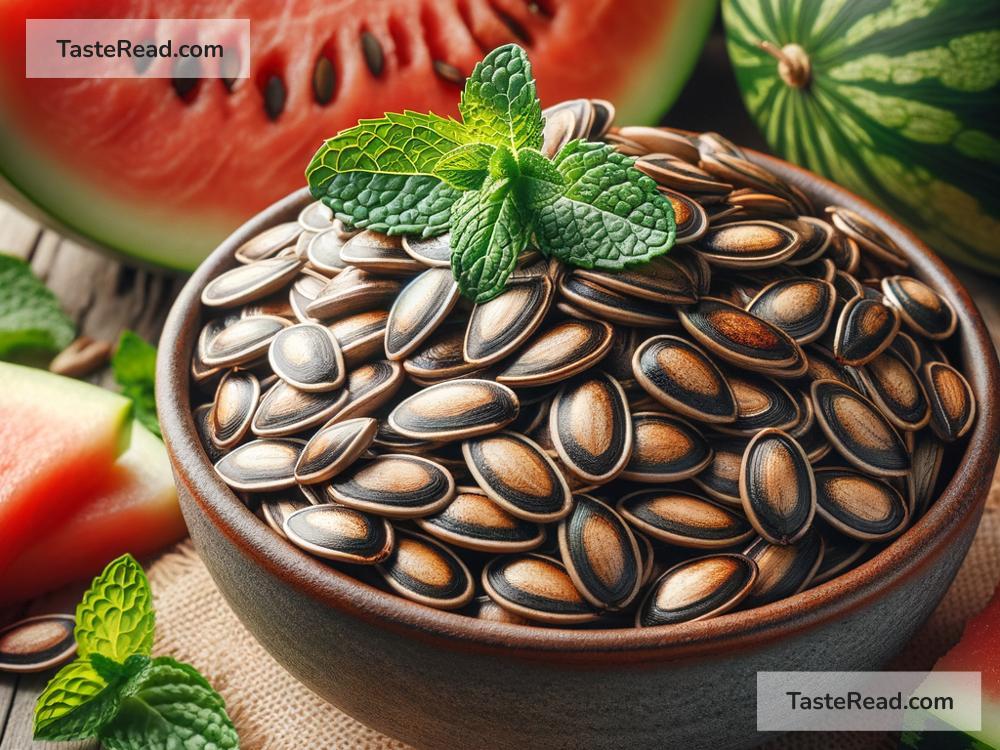Watermelon Seeds: A Natural Source of Magnesium for Muscle Recovery
After a tough workout or a long day of physical activity, your muscles might feel tired, sore, or even stiff. This is a sign that they need time and nutrients to recover and rebuild. While most people know about protein powders and energy drinks for muscle recovery, did you know that watermelon seeds could be a surprising and natural option to help your muscles heal? That’s right! These tiny seeds are packed with magnesium—a mineral that plays a vital role in helping muscles recover and function properly.
Let’s dive into the world of watermelon seeds and explore how they can support muscle health while being a tasty and nutritious snack.
What Is Magnesium, and Why Do Muscles Need It?
Magnesium is a crucial mineral that is involved in more than 300 chemical reactions in your body. It’s like a multitasking worker that keeps everything running smoothly. One of its most important jobs is taking care of your muscles. When you exercise or move your body, your muscles use energy, but they also produce waste products like lactic acid, which can make them sore. Magnesium helps your muscles relax, clears out waste, and restores normal function.
In addition to helping with recovery, magnesium also supports:
- Energy production: It converts food into energy, powering your muscles while you work out.
- Muscle relaxation: It prevents cramping and helps muscles stay flexible.
- Protein synthesis: It contributes to building and repairing muscle tissue.
Without enough magnesium, you might feel cramps, weakness, or slower recovery after physical activity.
Why Watermelon Seeds Are an Excellent Source of Magnesium
Watermelon seeds might be small, but they are packed with nutritional goodness. Many people spit them out or throw them away, but these tiny seeds are actually loaded with essential minerals and vitamins. One of their standout nutrients is magnesium.
Here’s why watermelon seeds are special:
-
High Magnesium Content: Just one ounce of dried watermelon seeds contains over 140 milligrams of magnesium. According to health experts, the daily recommended intake of magnesium for adults is between 310–420 milligrams. That means watermelon seeds can contribute significantly to your daily magnesium needs.
-
Rich in Healthy Fats: Besides magnesium, watermelon seeds contain healthy fats like monounsaturated and polyunsaturated fats, which promote overall heart health and reduce inflammation in the body. Reduced inflammation helps muscles recover faster.
-
Low-Calorie Snack: If you’re watching your calorie intake, watermelon seeds are a smart option. They provide nutrients without adding empty calories.
-
Additional Nutrients: Watermelon seeds also contain zinc, iron, and protein—all of which play supporting roles in muscle repair and overall health.
How Watermelon Seeds Support Muscle Recovery
When your muscles are overworked, magnesium steps in as the hero to relax and repair them. Eating watermelon seeds can provide your muscles with this much-needed mineral. Here’s how they work:
-
Relax Muscles: Magnesium prevents and alleviates muscle cramps caused by physical exertion or dehydration. By eating magnesium-rich foods like watermelon seeds, you can help your muscles stay flexible and prevent pain.
-
Restore Energy Levels: Your muscles need energy to recover, and magnesium plays a key role in energy production. Watermelon seeds help refill your body’s magnesium stores after exercise, giving you the stamina to bounce back quickly.
-
Repair Muscle Tissue: Protein and enzymes generated with the help of magnesium work on repairing muscle damage, making your muscles stronger over time.
So, having a handful of watermelon seeds after exercise can speed up recovery and reduce discomfort.
How to Eat Watermelon Seeds for Muscle Recovery
Some people might wonder how to include watermelon seeds in their diet. After all, eating them straight from a watermelon can be tricky. The good news is there are a few easy ways to enjoy them:
-
Roasted Watermelon Seeds: Roasting watermelon seeds brings out a nutty flavor. You can make them at home by rinsing, drying, and roasting them with a sprinkle of salt or your favorite seasoning.
-
Watermelon Seed Butter: Similar to peanut or almond butter, watermelon seed butter is a creamy and nutritious spread that can be used on toast or mixed into smoothies.
-
Add to Salads and Yogurt: Toss roasted watermelon seeds on top of salads or mix them into yogurt for a crunchy texture and added nutrients.
-
Include in Homemade Trail Mix: Combine roasted watermelon seeds with nuts, dried fruits, and dark chocolate for a magnesium-packed snack.
Final Thoughts
Watermelon seeds are an often-overlooked powerhouse of nutrients, especially magnesium. If you’re looking for a natural and tasty way to support muscle recovery, adding them to your diet is a smart choice. Not only do they promote relaxation and repair of your muscles, but they also provide other valuable nutrients that contribute to your overall health.
Next time you slice open a watermelon, don’t toss the seeds! Consider roasting them or using them in creative ways to give your body the minerals it needs. Your muscles will thank you, and you’ll have discovered a delicious snack that truly makes a difference.


